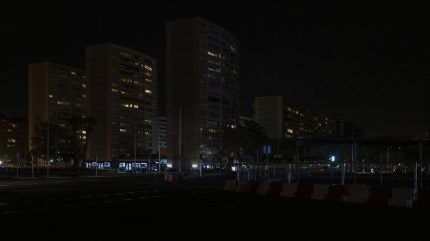
Spain’s energy minister, Sara Aagesen, has disclosed that an abrupt loss of power generation at the country’s Granada substation, followed by failures at Badajoz and Seville, was the cause of the blackout across Spain and Portugal on 28 April 2025, as reported by Reuters.
The initial incidents, which caused a loss of 2.2GW of electricity generation, triggered a series of grid disconnections.

Discover B2B Marketing That Performs
Combine business intelligence and editorial excellence to reach engaged professionals across 36 leading media platforms.
This led to Spain’s significant power outage, which then extended to Portugal.
The blackout’s origin has been traced to three locations, but its exact cause remains unknown.
Aagesen emphasised the complexity of the situation, stating: “We are analysing millions of pieces of data. We also continue to make progress in identifying where these generation losses occurred, and we now know that they started in Granada, Badajoz and Seville.”
Determining the cause of the outage will require time, and it is unlikely that there will be straightforward answers.

US Tariffs are shifting - will you react or anticipate?
Don’t let policy changes catch you off guard. Stay proactive with real-time data and expert analysis.
By GlobalDataThe government’s probe is also examining fluctuations in voltage prior to the blackout.
Cyberattacks, supply-demand imbalances and grid capacity issues have been ruled out as causes.
A spokesperson for Spain’s grid operator REE clarified that the main transmission grid was incident-free before the blackout.
The power loss occurred due to causes outside the grid, suggesting potential issues at generation plants or smaller grids.
Aagesen refuted claims of ignored warnings about a potential major outage, insisting:”There was no alert, no warning.”
The use of renewable energy and the country’s plan to phase out nuclear energy by 2035 have been scrutinised since the blackout occurred.
Critics have questioned whether the shift towards renewables and away from nuclear and fossil fuels may have contributed to the outage by reducing “grid inertia”.
Aagesen defended the energy policy, highlighting the benefits of renewables in terms of lower bills, investment attraction and energy autonomy amidst geopolitical instability.
The electricity system in Spain continues to operate at the same level of renewables as before the incident. Aagesen also expressed willingness to consider extending the lifespan of nuclear plants, conditional on security guarantees, consumer-friendly pricing and a positive impact on supply security.





